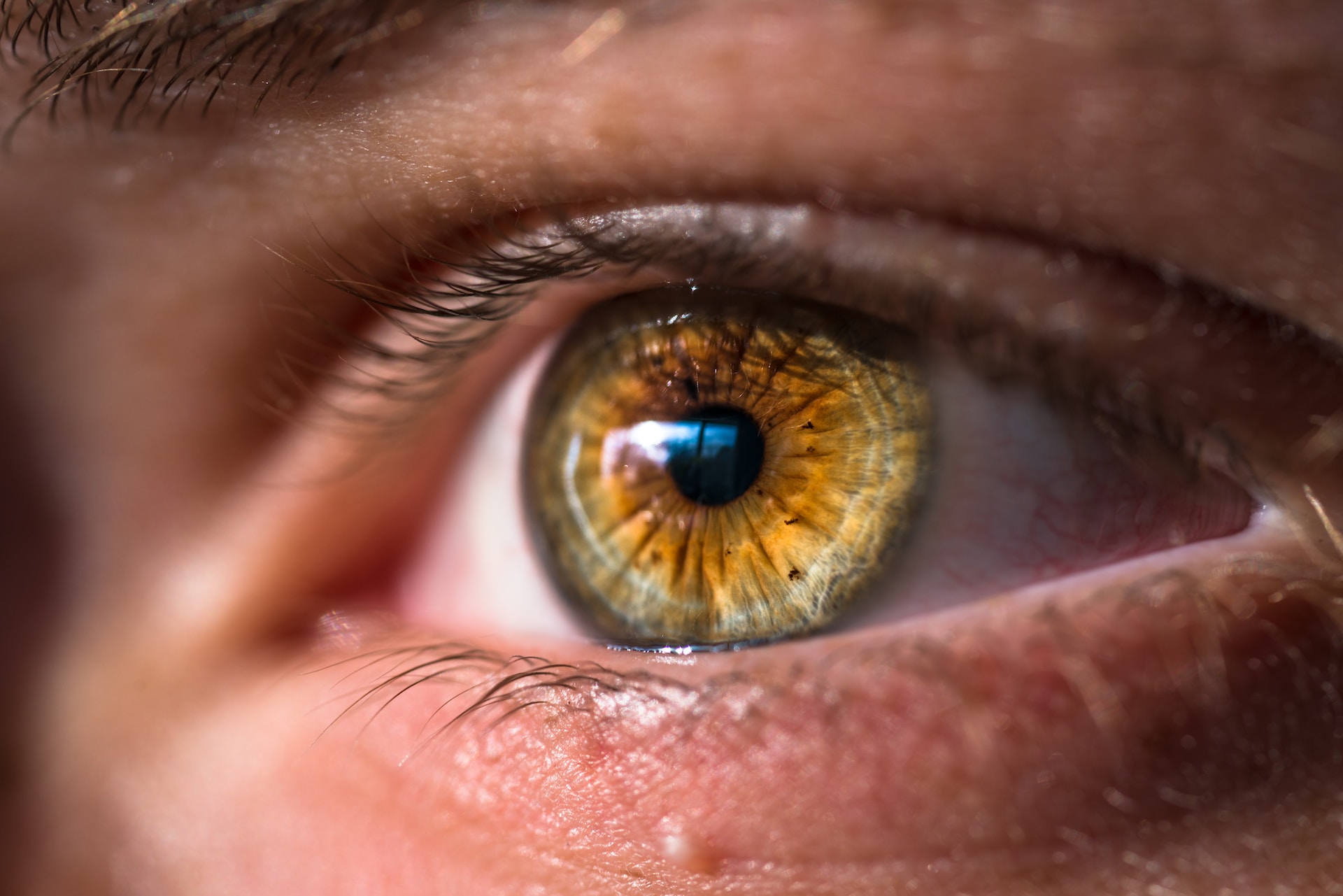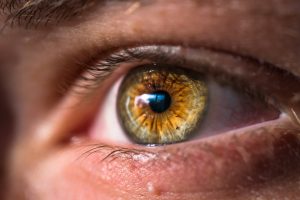
Macular degeneration is a fundamental threat to your sense of sight with increasing age.
Ah, the "golden years"?
I am starting to understand that age-old expression "old age is not for sissies" with each passing birthday.
Surprise?
As we age, our four fundamental "senses" age with us.
So it is with our sense of sight.
Did you know macular degeneration is the leading cause of irreversible vision loss in adults over 60?
What is macular degeneration, you ask?
It is a disease that impacts some 20 million Americans, with the risk increasing with age.
In fact, if you are 75 or older, the risk of developing macular degeneration is one in three.
Bad news.
Macular degeneration is now considered an incurable eye disease.
According the a recent AARP article titled “3 Warning Signs of Macular Degeneration,” during your eye exam, your doctor will look at the macula for drusen.

Macular degeneration is an eye disease affecting one-third of seniors aged 75 and older.
What is drusen?
These are yellow deposits of fats and proteins.
Some small drusen will come with age and will not occasion vision loss.
However, medium-sized or larger ones are typical signs of macular degeneration.
“Regular visits with an ophthalmologist can detect AMD (aka "age-related macular degeneration") years before patients notice anything is wrong,” says Andreoli. “Early detection of changes can lead to treatments that can slow progression or reverse vision loss in some cases of AMD.”
Research shows that taking certain high-dose vitamins and minerals — specifically, vitamins C and E, zinc, lutein, zeaxanthin, and copper — slows the progression of the disease in people with intermediate macular degeneration and those with the disease in late-stage in one eye.
Do not go out and stock up on vitamins and minerals just yet.
Why?
Supplements known as AREDS2 are sold over the counter in specific quantities.
Consult your eye doctor about whether such high-dose supplements make sense.
“Wet AMD is treated with the same AREDS2 vitamins as dry AMD, but also with injections of medications into the eye to treat the leaking blood vessels,” says Akrit Sodhi, M.D., professor of ophthalmology at the Wilmer Eye Institute at Johns Hopkins Medicine.
These medications help reduce the number of abnormal blood vessels in your retina.
They also slow leakage.
“Currently, these treatments are focused on stopping the progression of the disease, but good treatments that reverse damage are still in the works.”
Lifestyle also plays a role in treating macular degeneration, adds Sodhi.
“Reducing exposure to sunlight by wearing sunglasses, avoiding cigarette smoke, eating a healthy diet, and getting annual eye exams can help lower the risk that a patient develops vision loss from AMD as they get older,” he says.
I just had my annual eye exam with the good Dr. Greg Besler, and he gave me a very thorough checkup regarding macular degeneration, cataracts, glaucoma, and other eye conditions.
If you do not have an ongoing relationship with an eye doctor, then I recommend that you do so without delay.
Too much is at stake.
Need a referral to a great eye doc?
There is none better than my Doctor Beez.
I have known Greg since he was in seventh grade (and I was in eighth).
And that is a long time, even in dog years.
Reference: AARP (October 27, 2022) “3 Warning Signs of Macular Degeneration”
REMEMBER: “The choice of a lawyer is an important decision and should not be based solely upon advertisements.”
This statement is required by rule of the Supreme Court of Missouri.
